Many homeowners ignore the impact of code violations when assessing their property’s value. These violations can seem minor but often have serious consequences. Left unchecked, they might become a big problem during a sale.
Buyers get nervous when they see unapproved changes or safety issues in a property. Lenders may hesitate to offer loans or reduce their offers. This can lead to lower prices, longer sales, and extra costs for the owner. Code violations can lower your property value by making it less appealing and harder to sell.
The best way to protect your investment is to find and fix violations early. Taking action now can help you avoid surprises later. This blog will show you how to spot and solve code violations before they hurt your property’s value.
Key Takeaways
- Unresolved code violations decrease appraised property values, making homes less attractive to buyers and lenders.
- Safety and structural violations raise buyer concerns, often leading to lower offers or difficulty securing financing.
- Unpermitted work signals risk and reduces buyer confidence, frequently resulting in appraisal value reductions.
- Code violations can delay or halt sales, increasing repair costs and decreasing the seller’s negotiation power.
- Properties with violations may face higher insurance premiums or denial of coverage, further reducing their market value.
Understanding What Constitutes a Code Violation
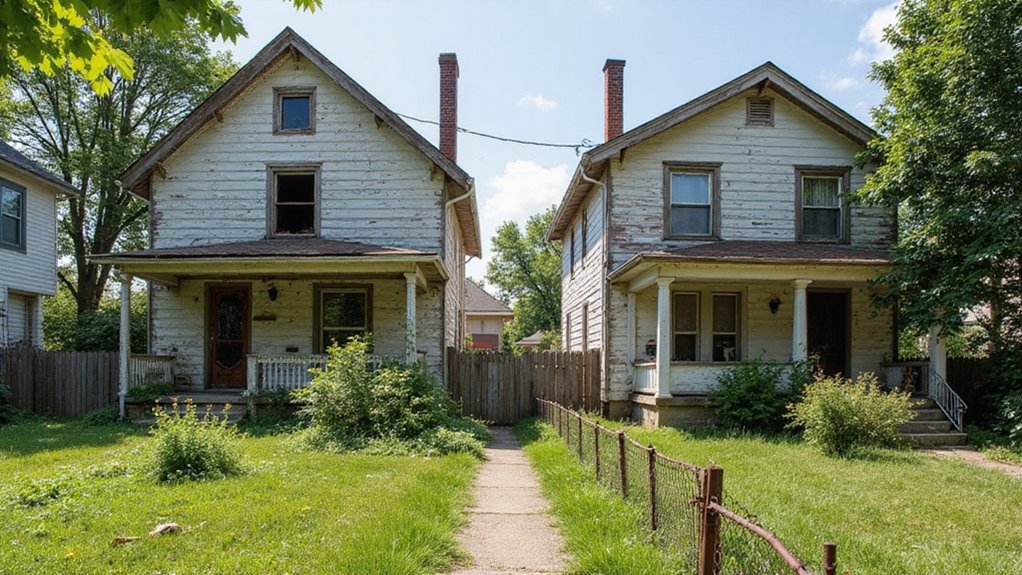
A code violation happens when you do not follow local property rules. These rules are called codes or regulations. If you ignore them, you may face fines or other consequences.
Every property must follow zoning rules. Zoning rules decide how you can use your land and what you can build. If you use your land in the wrong way, that is a violation. Many sellers choose to disclose code issues instead of fixing them, especially if the violation is minor or grandfathered in.
Some areas have historic preservation rules. These require you to keep certain building features and avoid changes without approval. If you break these rules, you may be penalized.
If you want to avoid violations, always check your local codes before making changes. This helps protect your property’s value and prevents legal issues. If you are unsure, ask your local authority for guidance.
It is also important to know that building code compliance is updated frequently in Virginia, so staying informed about new requirements can help you avoid unexpected violations and penalties.
Common Types of Code Violations in Residential Properties
Code violations in residential neighborhoods usually happen when rules are not followed. Many come from ignoring zoning laws or neglecting property upkeep. Unauthorized changes or additions to a home can also cause violations.
For homeowners looking to sell quickly, working with a reliable partner that purchases homes in any condition can help avoid costly delays caused by code issues.
Common problems include overgrown lawns, improper trash disposal, or building sheds without permits. Skipping permits for renovations or electrical work often leads to fines. Homeowners may face expensive repairs if these issues are not corrected.
Homes in historic areas have stricter regulations. Any changes, like new windows or exterior updates, usually need special approval. If homeowners do not follow these rules, they can face heavy penalties and required fixes.
Even minor code violations can have a significant impact on property value by reducing buyer appeal and limiting sale opportunities.
How Local Codes Differ and Why It Matters
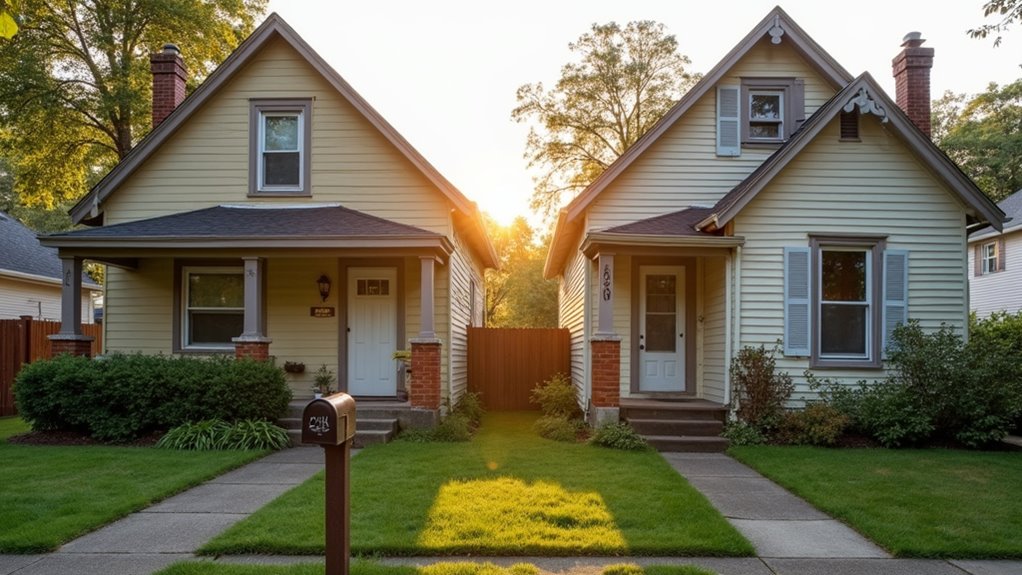
Local codes are different in every city, county, and neighborhood. These differences matter because they affect what you can do with your property. If you ignore local codes, you might face fines or other problems.
Zoning rules can limit the way you use your land. Historic districts often have special rules for renovations. Setback requirements also change from one place to another. Understanding how local enforcement of these codes can impact your ability to sell quickly is important, since stricter areas may require additional steps before closing.
Permitted building materials and methods may not be the same everywhere. Local officials might enforce rules more strictly in some areas. If you want to avoid trouble, always check your local codes before starting any work. Knowing how inventory levels can influence property sales in your local market is also important, since code violations may limit your options if you need to sell quickly.
The Impact of Unpermitted Work on Market Value
Unpermitted work can lower your home’s market value. Buyers often see it as a risk because of possible legal or repair issues. If a property has unapproved changes, it may be harder to sell.
Lenders and appraisers may notice unpermitted work. They can delay or stop the sale process. Buyers might ask for a lower price to cover future costs. Consulting with professional services can help you understand how unpermitted work may affect your specific situation.
If you added home automation, landscaping, or made other changes without permits, buyers may worry. Some work, like electrical or plumbing, could cause more serious concerns. These issues often mean extra expenses to fix them.
Unpermitted work can also create financing issues because lenders are often hesitant to approve loans on properties with unresolved code violations.
| Unpermitted Work Type | Typical Market Impact |
|---|---|
| Home Automation | Lower buyer confidence |
| Exterior Landscaping | Appraisal complications |
| Room Additions | Value reduction |
| Electrical Upgrades | Financing issues |
| Plumbing Changes | Costly corrections required |
Unpermitted work often creates problems during a sale. It can lead to lower offers or extra steps before closing. If you want the best price, always check for proper permits.
Safety Risks and Their Influence on Buyer Perception
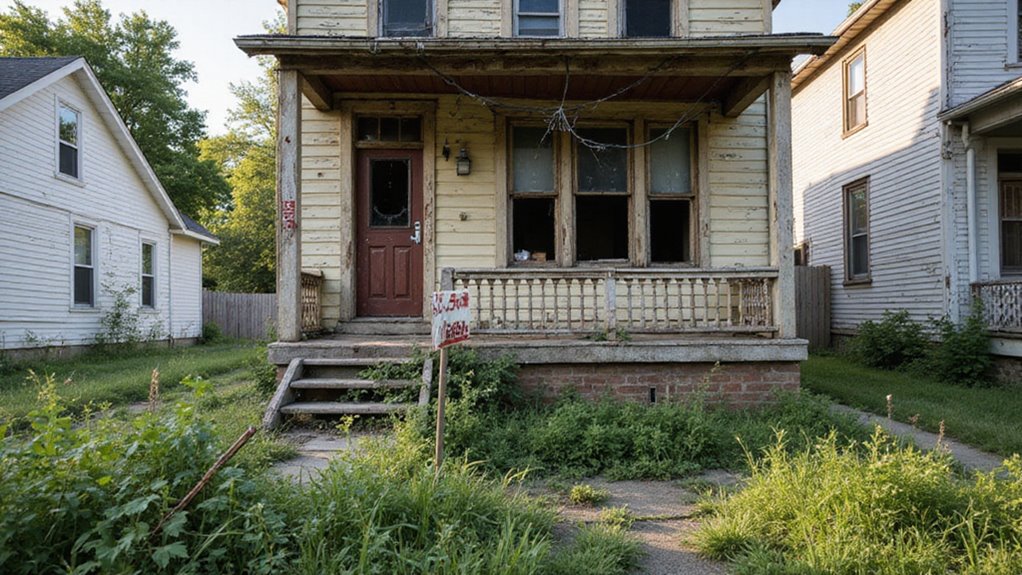
Safety risks can make buyers worried about a property’s condition. Buyers may think properties with code violations are unsafe or poorly maintained. These concerns can lower a buyer’s interest and offer price.
If there are code violations, buyers might fear hidden dangers like faulty wiring or weak structure. They may worry about expensive repairs in the future. Legal problems or failing community standards could also be a concern. Buyers may also hesitate if they see that proper preparation for closing hasn’t been done, since this can signal ongoing issues with the home.
A buyer could lose trust in a seller who hides safety issues. If safety concerns are addressed early, buyers may feel more confident. Fixing problems quickly helps keep the property’s value strong.
Many sellers in New Market, VA benefit from the ability to sell houses in any condition without worrying about making costly repairs before selling.
Effects on Appraisals and Lending Approval
When a property has code violations, you’ll see its appraisal value take a hit, often falling below comparable homes in compliance. Lenders treat these violations as red flags, which can make loan approval much tougher or even impossible. You need to understand how these factors directly impact your ability to buy, sell, or refinance.
Issues like code violations may also lead to title insurance complications, which can delay or derail a sale if not addressed properly. In Virginia, disclosure laws require sellers to reveal known issues like code violations or water damage, and failing to do so can result in legal and financial penalties.
Appraisal Value Reductions
Code violations lower a property’s appraised value and make it harder for buyers to get a loan. Lenders want properties to meet current codes. If a property does not, the risk for the lender increases.
Appraisers lower value estimates if there are unresolved code violations. Historic preservation issues can cause bigger value drops. Environmental problems may require more inspections and lead to further value cuts.
Safety or structural violations make a property less attractive to buyers. Lower appraisals can limit your financing options. If violations are not fixed, sellers lose negotiation power.
Loan Approval Challenges
Lenders usually will not approve a mortgage for a home with code violations. They require properties to meet all building codes. If your home does not comply, getting a loan becomes very hard.
Appraisers report any violations they find. This can lower your home’s value or cause a loan denial. Lenders see these issues as financial risks.
Even small violations can delay or stop the sale. Underwriters may demand repairs before closing. If repairs are not made, the lender may cancel the loan offer.
If your property fails building code checks, you may not get traditional financing. You might have to look for cash buyers instead.
How Code Violations Affect Insurance Coverage
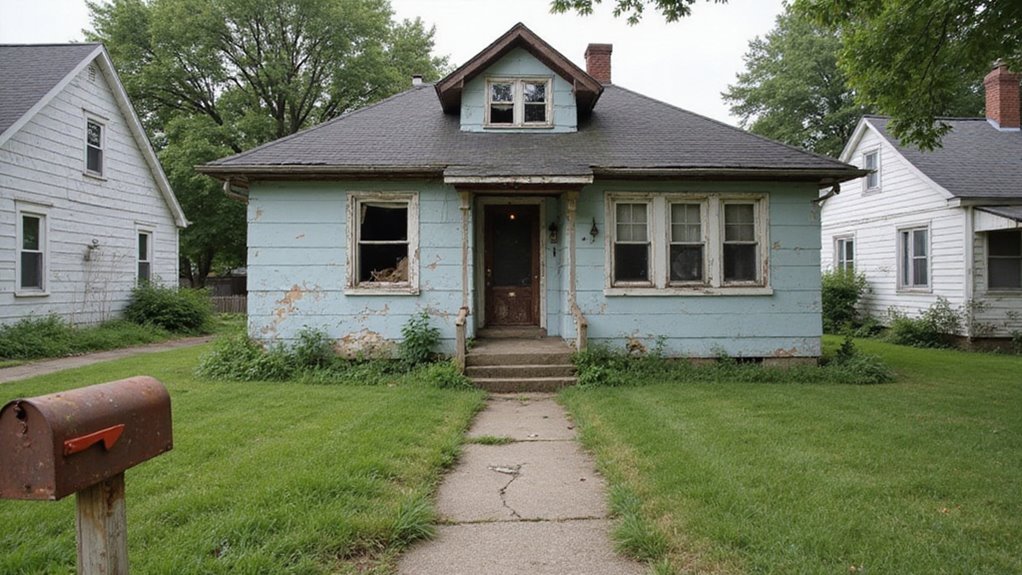
When your property has code violations, insurers see you as a higher risk and often raise your premiums. In some cases, they might even deny you coverage entirely. In Virginia, having unresolved violations can also increase legal risks if defects are not properly disclosed, which may affect your ability to negotiate with buyers or insurers.
You need to understand that unresolved violations can severely limit your insurance options and increase your long-term costs. If you’re considering selling a property with code violations, houses bought as-is can offer a solution that eliminates the need for costly repairs or insurance complications.
Increased Insurance Premiums Risk
Insurance companies check code violations because these can lead to more insurance claims. If your property has unresolved violations, your premiums may go up. Insurers see these violations as signs of higher risk.
Code violations can mean there are hidden safety problems in the home. These problems, if left unfixed, make claims more likely. Insurers may also believe that the property has not been well maintained.
If code violations exist, your home’s value might drop. Neighborhood appearance could suffer, and this affects how insurers judge risks. Historical properties with violations can have more complex coverage rules.
Coverage Denial Possibilities
Code violations can cause your insurance company to deny coverage. Insurers expect your property to follow building codes. If your property does not meet codes, you risk losing insurance protection.
If an accident happens because of code violations, your claim might be denied. Insurance companies review the safety of your property before offering coverage. Properties with serious violations may not get any insurance support.
If your property meets all codes, you can get full coverage. Minor violations might lead to higher premiums or limited coverage. Major violations almost always result in a denied claim.
Ignoring building codes puts you at financial risk. You could face expensive repairs that insurance will not cover. Keeping your property up to code protects both your investment and your insurance coverage.
The Role of Disclosure Laws in Real Estate Transactions
Disclosure laws play an important part in real estate deals. These laws require sellers to share known problems, like code violations. If sellers follow these rules, buyers and sellers both stay protected.
Disclosure rules increase honesty about building safety and old code issues. Buyers can avoid surprise repairs if sellers share all facts. If someone hides issues, legal problems and costs can follow.
Understanding these laws helps everyone make better choices. Property values will reflect known conditions if all facts are shared. If you disclose properly, disputes after the sale are less likely.
Additionally, sellers in Virginia need to be aware of the importance of as-is clauses when dealing with properties that have code violations, since these clauses clarify buyer responsibilities and help prevent future disputes.
Negotiating Power: Buyers Versus Sellers
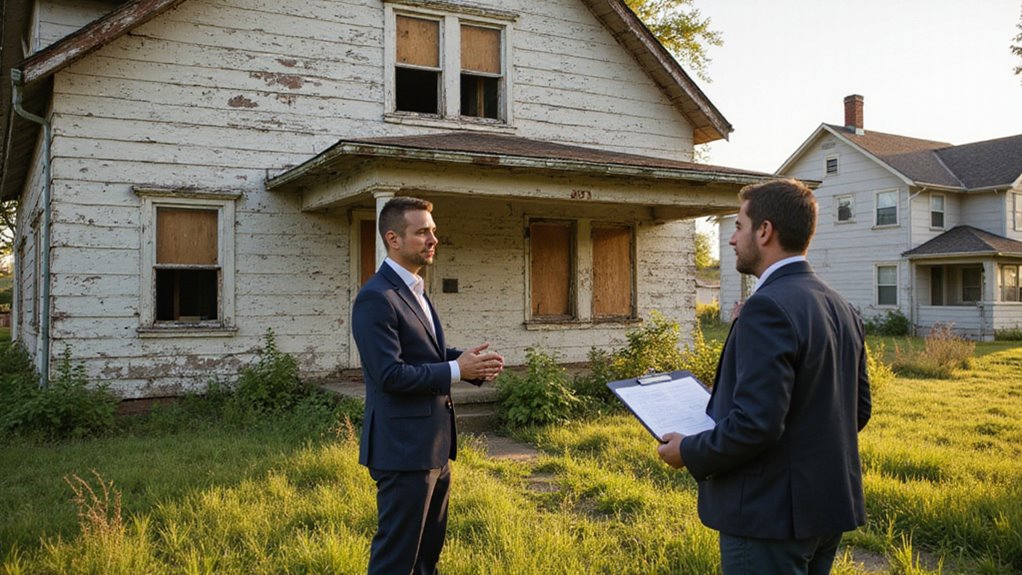
When code violations enter the conversation, you gain or lose influence at the negotiating table depending on your role. You’ll notice that repair costs often become central to price talks, directly shaping your offer or counteroffer. Disclosure requirements further shift the balance, forcing both sides to reevaluate their positions and strategies.
Leverage During Price Talks
Code violations can affect how much power each side has during price talks. Buyers often gain leverage by pointing out these issues. Sellers may lose bargaining power if they do not address the violations.
Buyers can ask for a lower price to cover repair costs. If violations increase property taxes, buyers may factor this into their offer. Zoning problems might also limit what buyers can do with the property.
Sellers can offer credits or other benefits to balance out the violations. Clear and honest disclosure from sellers can help build trust. If both sides are open, negotiations usually go more smoothly.
Repair Costs Impact Offers
Repair costs linked to code violations can affect property offers. Buyers and sellers often negotiate based on these costs. High repair expenses usually lead buyers to offer less for a property.
If violations require expensive or specialized repairs, buyers gain more bargaining power. Some sellers may downplay these costs or highlight the property’s future value. Extensive repairs or unapproved work can further shift negotiations in favor of buyers.
A clear understanding of local building codes and compliance rules helps you negotiate well. If you know these rules, you can better protect your investment. Always consider both visible and hidden repair costs before making an offer.
Disclosure Requirements Influence Negotiations
Disclosure requirements play a key role in real estate negotiations. Sellers must share known code violations, but how much they reveal can affect the deal. More details often give buyers stronger bargaining power.
If buyers get full information about problems, they can ask for a lower price or repair credits. Environmental hazards or zoning issues can support requests for discounts or special terms. Buyers may also ask for repairs before closing.
Sellers who are open and honest build trust with buyers. However, if violations are serious, this honesty may lower the seller’s leverage. If disclosures are unclear, buyers might back out or demand new terms.
Clear and complete disclosures help sellers avoid legal issues after the sale. Honest information protects both parties from future disputes. If you are unsure, seek advice to balance your interests.
Costs Associated With Bringing a Property up to Code
Bringing a property up to code can be expensive. You must pay for permits, hire contractors, and buy materials. If improvements raise your property value, your taxes might also go up.
Zoning restrictions may require changes to unapproved structures. Sometimes, you need to redesign or remove these additions. These steps can add to your costs.
It is important to assess all possible expenses early. This helps you avoid financial surprises. You should compare these costs to your property’s current market value.
Here is a breakdown of common costs:
| Expense Type | Typical Example | Resulting Impact |
|---|---|---|
| Direct Costs | Contractor fees | Immediate expenses |
| Indirect Costs | Higher property taxes | Ongoing expenses |
| Compliance Issues | Zoning restrictions | Redesign or removal |
Time Delays in the Selling Process
You’ll likely encounter significant time delays when code violations are involved, especially during inspection scheduling and repair completion. These setbacks can stall your listing and disrupt your closing timeline, making your property less attractive to buyers. Recognizing these potential extensions early lets you set realistic expectations and strategize effectively.
Inspection Scheduling Setbacks
Code violations can slow down inspection scheduling. These inspections are often required before you can sell your property. If you skip maintenance or miss permits, the sale process becomes harder.
Inspectors may not be available right away. Municipal backlogs or missing paperwork can add even more delays. If inspectors find problems, you may need to reschedule.
Incorrect or incomplete permits will also cause setbacks. Administrative delays can happen if you forget documents. Poor coordination with inspectors can further slow your sale.
Every delay pushes your closing date further out. If you want a smooth sale, address these issues early. Proper planning helps avoid last-minute problems.
Repair Completion Extensions
Repair completion extensions are common when fixing code violations. The closing process will not continue until all repairs are finished and checked. Delays often happen during this stage.
Contractors may find new problems, or extra approvals might be needed. Permit issues can cause further delays if city or county approval is required. Timelines often change due to these factors.
If repairs take too long, buyers may lose interest or ask for a lower price. Each delay increases uncertainty about the sale. Long repair times can hurt your property’s value and appeal.
Potential Legal and Financial Penalties
When a property has code violations, the owner may face legal and financial penalties. These penalties can increase quickly if not fixed soon. Authorities can take action if violations are ignored.
City officials may charge daily fines for each day the issue remains. The city may also place a lien on the property, which can block refinancing or selling. Legal fees may add up if lawsuits happen.
Insurance companies might refuse coverage or raise premiums. If a court gets involved, it may order repairs by a certain date. Ignoring these orders can raise costs even more.
Strategies for Addressing and Resolving Violations
Property owners must quickly address code violations to avoid penalties and legal trouble. Start by reading the violation notice and checking local building codes. If you act promptly, you lower the risk of extra fines.
Handle urgent safety problems first. After that, work on less serious issues. Qualified contractors can help if environmental hazards are involved.
If your property is in a historic area, follow preservation rules. Unauthorized repairs could lead to more penalties. Always check if special permits are needed.
Keep records of all repairs and permits. If you document each step, inspectors are more likely to work with you. Good communication with officials shows you take compliance seriously.
Resolving violations protects your property’s value. If you fix issues properly, buyers and lenders will have more confidence in your property. Taking quick, careful action helps you meet all legal requirements.
Preventative Measures to Protect Property Value
Preventative measures help protect your property’s value. Regular maintenance and compliance with codes reduce the risk of losing value. If you act early, you can avoid expensive violations.
Property owners should create a yearly schedule for municipal inspections. This helps spot issues before they become costly problems. If you stay alert, you can resolve concerns faster.
A maintenance calendar keeps repairs organized. Property records show your commitment to upkeep. Buyers and officials trust well-documented properties.
If codes change, stay informed to remain compliant. Quick repairs prevent minor issues from growing. Good records of repairs and inspections support your property’s value.
Conclusion
If you address code violations early, you can preserve your property’s value and reduce future complications. Ignoring these issues may lead to lower offers and fewer interested buyers. Taking action now protects your investment and helps you avoid delays during the selling process.
If you want a fast and easy sale, we buy houses for cash in any condition. You do not need to worry about making repairs or fixing code violations. We make the selling process simple and stress-free for homeowners.
If you are ready to sell or have questions about your property, we are here to help. Contact Align Real Estate Solutions today. Let us provide you with a fair cash offer and peace of mind.
Author
-

Zach Koops is co-founder and Real Estate Success Manager at Align Real Estate Solutions, serving homeowners across Virginia since 2024. With a passion for real estate and a heart for people, Zach has built his career around helping sellers navigate tough situations—foreclosure, inheritance, relocation, repair-overload—with clarity and compassion. He’s known for being straightforward, steady under pressure, and deeply invested in relationships. Outside of work, he spends his time as a husband and father, enjoys the outdoors in Shenandoah Valley, loves singing on stage, and constantly seeks growth through reading and new experiences.









